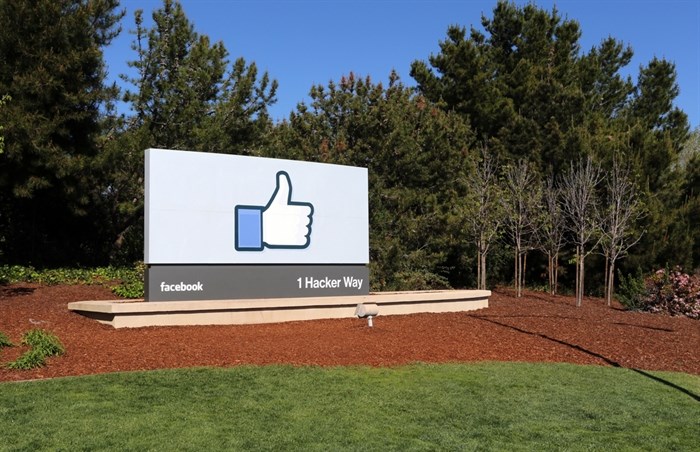
A sign at the entrance to the Facebook World Headquarters located in Menlo Park, California on March 18, 2014.
Image Credit: Katherine Welles/Shutterstock.com
March 08, 2015 - 4:26 PM
OTTAWA - One after one, delegates to a conservative political conference in Ottawa this weekend pulled a lever on a machine press to create small political lapel buttons in support of their cause of choice.
Then they ventured over to another room to learn how to leverage potentially the biggest button for the upcoming federal election: the like button on Facebook.
But what they're learning is that it's not just about getting people to hit that button — it's what a politician does next.
"Yes, you want engagement and that's where it all begins, but to the extent that you can target the right audience to get the outcome you want that's even better," Kevin Chan, the head of public policy for Facebook Canada, told delegates at the Manning Centre's networking conference.
Targeting voters is not a new political strategy for the Conservative party in particular, renowned for an approach to wooing Canadians via niche tax breaks and a highly-oiled fundraising machine.
But those efforts in the past relied largely on the data the party could capture itself and social media provides an entirely new level of intelligence.
The importance of technology in the upcoming election was highlighted by its dominance on the Manning Centre's agenda this year — roughly a quarter of the sessions touched on some aspect of the digital campaign.
Some of what the data can do is improve existing strategy: knowing that the majority of Facebook users are online between 9 and 10 p.m. can make that the best time to post a pitch.
But figuring out who to send that pitch to is where the data comes to life: Facebook can match voter lists gathered by parties to Facebook users and then target just those users with particular ads, and go even further by taking those profiles and looking for users who are similar, and help politicians blast them with ads as well.
One company is helping conservatives in Canada do the same thing with Twitter data, harvesting profiles of those with clear links to conservative ideology — identified who they follow or other markers — whose names can then be run against existing donor and other party databases in order to search for potential new volunteers and donors.
While everyone may talk about the campaign being about so-called "big data," it's actually about linking together smaller components of information, said Mike Moschella, the vice president of NationBuilder, a U.S.-based company that helps people organize online.
The end goal is to create more relevant and useful interactions between people and would-be elected representatives that actually motivate people to participate in the political process, whether by donating or just showing up to vote.
"When this is done right, it's really good for democracy," Moschella told the conference.
"People are going to feel much more directly engaged, people are going to be able to have a running conversation with a political leader, that's personal, that is direct, that is actually the data is done right and is therefore delivered to them in a really effective way," he said.
Just as politicians are discovering new ways to use social media, so are Canadians.
Research compiled by Google shows that on average, a voter will make 14.7 attempts to get information about an issue online before deciding how to cast a ballot.
"Following old habits may feel comfortable and may seem predictable but these habits assume the campaign's method of communication, voter preferences and get out of the vote tactics have remained static," Colin McKay, the head of public policy for Google Canada told the conference.
"It's clear that Canadians, as consumers, citizens and voters, have come to expect more."
News from © The Canadian Press, 2015